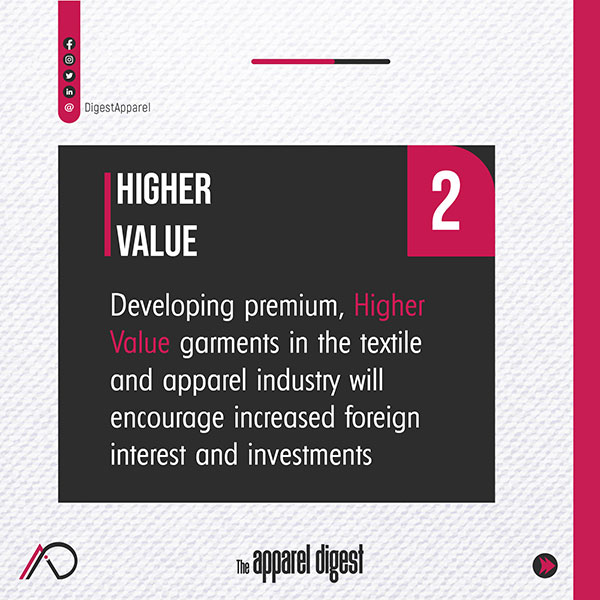Monira Munni
Local readymade garment exporters are worried over Russia’s war against Ukraine as a good number of apparel brands and retailers have closed their shops in Russia that resulted in uncertainty of payment, suspension of orders here.
Shipment of locally produced readymade garments to Russia and the payments from the buyers are declining day by day as Russia’s war against Ukraine rages.
H&M, Mango, Asda, Tesco, Next and IKEA are among the companies that have already announced the suspension of their business in Russia.
According to Forbes, in 2021 the turnover of the Russian fashion market has grown to 2.69 trillion rubles.
About 67 percent of this turnover accounted for the sale of clothing. The exact number of international brands in Russian experts could not even count.
According to Bangladesh industry people, more than 100 local apparel exporters are in uncertainty over their business as Bangladesh risks losing a key emerging market if the conflict persists.
Apparel exports to Russia stood at US$ 593 million in the last fiscal year while exporters expect to reach the billion dollar mark in current fiscal, according to industry leader.
But many garment suppliers are not receiving export receipts as several Russian banks have been banned from using SWIFT, the global payments messaging network.
It came after the European Union said it was excluding seven Russian banks from the SWIFT (Society for Worldwide Interbank Financial Telecommunication). The US has recently announced sanctions on four large Russian banks.
Many exporters have either already produced the finished items for the Russian buyers or sent the goods to the Chattogram port to be shipped.
But the shipping lines are not taking the goods on board because of the sanctions related to the war.
As much as 169 containers remained stranded in Chattogram since beginning Russian invasion to Ukraine. Later until Sunday only dozen is stilled at the port while the rest have been taken through another country like Poland.
Latter the blow came with suspension of work orders from almost all European buyers including H&M who have retailing with Russia.
Amomg the indirect victims of the war are Gazipur and Narayanganj-based garment exporters.
A Gazipur based factory received $5 million worth of orders from Russia in November.
As per the order, the factory shipped men’s and women’s tops, casual shirts and other woven garment items worth more than half million dollar but the export documents were sent back to him from Hungary recently due to the SWIFT ban.
The factory has garment items lying at the Chattogram port as no shipping company is willing to transport them to the destination while it has another 1.1 million pieces of garment items waiting to be manufactured as per the order.
Uncertainty looms as the buyer is asking the supplier to delay the shipment.
Similar things are happening to others. H&M has hold all its work orders destined to Russia here in Bangladesh with its temporary pause in sales in Russia.
Miran Ali vice president of Bangladesh Garment Manufacturers and Exporters Association said almost all EU buyers that retail in Russia have suspended their orders here in the country.
For those exporters, the Russian-Ukraine war has emerged as a major blow.
The blow came at a time when their businesses were recovering from the pandemic-induced slowdown on the back of the increased volume of work orders from international retailers and brands with the receding of coronavirus cases.
In order to manufacture the finished goods, they have already purchased raw materials and other accessories from the back-to-back letters of credit.
Many of them might burden with forced loan if they fail to receive payments.
BGMEA leader went on saying that exporters are in continuous discussion with their respective buyers about the shipments while from the association they are also keeping an eye and lobbying.
According to reports, payment of $2.5 million for a consignment of garment exports has become uncertain for a factory namely– Young 4 Ever Textile as well.
It, however, received $0.2 million in payments after a long negotiation for another consignment.
According to Ali, buyers want to do business.
But local suppliers are facing challenges as no international courier service companies are taking documents to Russia.
DHL, FedEx and United Parcel Service have suspended shipments into Russia amid the country’s invasion of Ukraine.
According to executive president of the Bangladesh Knitwear Manufacturers and Exporters Association Mohammad Hatem export of garments through third countries is not facing much difficulty.
Some 20 per cent out of nearly $600 million garment items shipped from Bangladesh directly goes to Russia and the rest through third countries such as Turkey, Poland, Hong Kong and some other European nations, according to him.
The Bangladesh Bank recently advised garment exporters to do business with Russia through third countries and transact with the Russian banks that are not facing the SWIFT ban, according to Hatem.
Some exporters said some Russian buyers are asking for using the Chinese alternative to SWIFT.
The issue might resolved shortly, they hoped.
The BGMEA has opened a desk to help all types of apparel exporters inform it about orders received, executed and payments unpaid.
In the July-January period of the current fiscal year, suppliers sent garment items worth $415.47 million to Russia, registering a 36.47 per cent year-on-year growth, according to BGMEA data.

